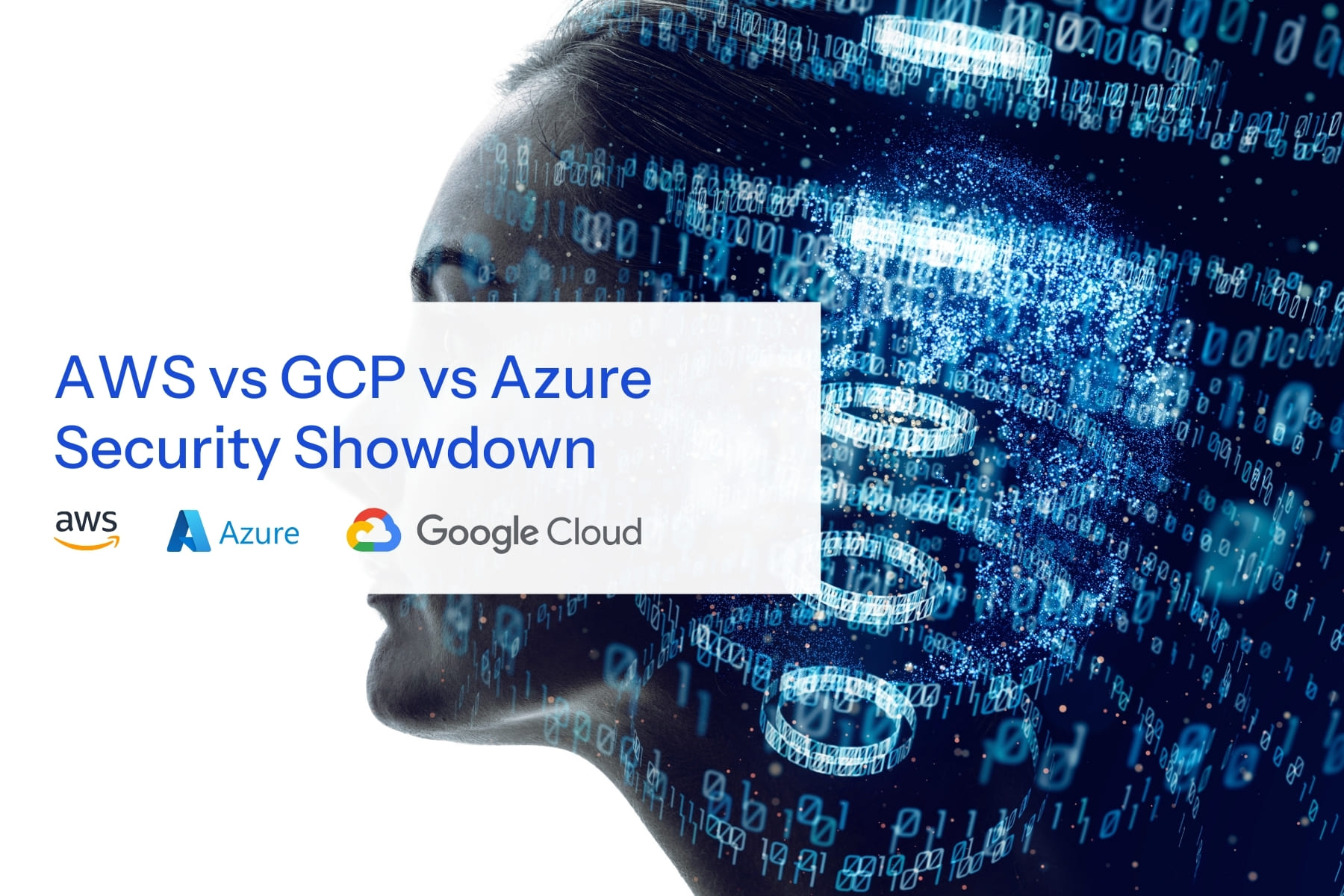Cloud security is one of the most critical concerns for businesses moving to the cloud. With cyber threats evolving rapidly, choosing the most secure cloud provider can be challenging. AWS, Google Cloud (GCP), and Microsoft Azure are the three dominant players in the cloud industry, each offering robust security features. But which one stands out?
In this blog post, we’ll compare AWS, GCP, and Azure in terms of security features, compliance, encryption, identity & access management, and threat detection.
1. Identity & Access Management (IAM)
Controlling access to cloud resources is the foundation of cloud security. Each provider offers IAM solutions, but with different approaches:
AWS IAM
- Fine-grained access control through IAM roles, policies, and permissions
- AWS Organizations for multi-account security management
- AWS Identity Center (formerly SSO) for managing workforce identities
- Supports multi-factor authentication (MFA)
Azure Active Directory (AAD)
- Native integration with Windows environments & Microsoft 365
- Supports Role-Based Access Control (RBAC)
- Azure AD Identity Protection for risk-based conditional access
- MFA and passwordless authentication options
Google Cloud IAM
- Role-based and attribute-based access control
- Supports Cloud Identity for workforce authentication
- BeyondCorp for zero-trust security model
Verdict: AWS offers more granular IAM controls, while Azure is best for enterprises with Microsoft Infrastructure. GCP leads in zero-trust security.
2. Data Encryption & Key Management
Encryption ensures the data remains protected from unauthorized access. Let’s see how each provider handles it:
AWS Encryption & Key Management
- AWS Key Management Service (KMS) for encryption key management
- Server-side encryption for S3, RDS, and EBS
- AWS Secrets Manager for credentials storage
Azure Encryption & Key Management
- Azure Key Vault for storing keys, secrets, and certificates
- Transparent Data Encryption (TDE) for databases
- Double encryption support for additional security
GCP Encryption & Key Management
- Cloud Key Management Service (KMS)
- Customer-managed encryption keys (CMEK)
- Envelope encryption for additional protection
Verdict: All three providers offer strong encryption, but AWS and GCP provide more control over encryption keys.
3. Threat Detection & Security Monitoring
Real-time monitoring and threat detection are essential for cloud security. Here’s how AWS, Azure, and GCP handle it:
AWS Threat Detection & Monitoring
- Amazon GuardDuty for anomaly detection
- AWS Security Hub for centralized security management
- AWS Inspector for automated security assessments
Azure Threat Detection & Monitoring
- Microsoft Defender for Cloud provides threat detection
- Azure Sentinel, a cloud-native SIEM solution
- Azure Security Center for compliance monitoring
GCP Threat Detection & Monitoring
- Security Command Center for centralized security management
- Google Chronicle for security analytics
- Event Threat Detection for suspicious activity
Verdict: AWS has the most mature security tools, but Azure Defender and Sentinel are strong choices for Microsoft environments. GCP is excellent for AI-driven security insights.
4. Compliance & Regulatory Standards
Enterprises in regulated industries need cloud providers that meet compliance standards.
| Compliance Framework | AWS | Azure | GCP |
|---|---|---|---|
| ISO 27001, SOC 2, PCI DSS | ✅ | ✅ | ✅ |
| HIPPA (Healthcare) | ✅ | ✅ | ✅ |
| FedRAMP (Government) | ✅ | ✅ | ✅ |
| GDPR (EU Data Protection) | ✅ | ✅ | ✅ |
Verdict: All three cloud providers meet industry-standard compliance frameworks. Your choice depends on your specific regulatory requirements.
5. Security Best Practices & Automation
Cloud security is not just about built-in tools–it’s about how you can automate security policies and follow best practices.
AWS Security Best Practices
- AWS Well-Architected Framework for security best practices
- AWS Config for continuous compliance monitoring
- AWS Lambda for security automation
Azure Security Best Practices
- Azure Policy for enforcing security policies
- Microsoft Secure Score to measure security posture
- Azure Automation for compliance and security enforcement.
GCP Security Best Practices
- Binary Authorization for secure container deployment
- Forseti Security for policy enforcement
- Cloud Security Command Center for insights and recommendations
Verdict: AWS provides the most extensive security automation tools, but Azure integrates well with Microsoft environments, and GCP excels in security analytics.
Final Verdict: Which Cloud is the Most Secure?
All the three cloud providers offer enterprise-grade security, but the best choice depends on your needs:
- Choose AWS if you need the most mature security tools with deep IAM control.
- Choose Azure if you’re running a Microsoft-based enterprise and want built-in security integration.
- Choose GCP if you prioritize AI-driven security insights and a zero-trust architecture
At the end of the day, cloud security is a shared responsibility–no matter which provider you choose, you must implement security best practices to protect your cloud environment.
Need Help Securing Your Cloud?
Our team specializes in cloud security, application modernization and compliance for AWS. Whether you need a security assessment, compliance audit, or a cloud security strategy, we’ve got you covered!
Contact us today to secure your cloud infrastructure.

